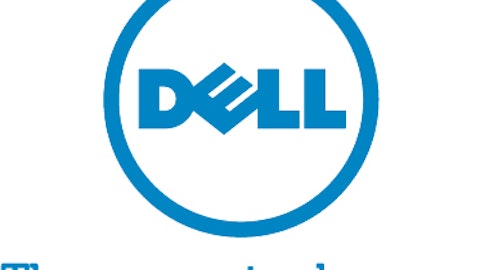When it comes to General Electric Company (NYSE:GE)‘s massive finance division, it may be time for Plan B.
Since as early as 2007, GE has been working to shrink its GE Capital unit. After being relatively unsuccessful in that effort after six years, General Electric Company (NYSE:GE) CEO Jeff Immelt has recently teased the markets with the possibility of spinning off large divisions of GE Capital through either an IPO or sale.
Nothing is ever easy
GE Capital’s consumer unit is huge. Immelt’s initial efforts to sell the credit card business — which is about 11% of General Electric Company (NYSE:GE) Capital assets — were estimated to have a price tag of $20 billion to $30 billion. Even in the high-flying times before the financial crisis, $30 billion was no small acquisition. So the size alone limits the potential buyers to a select few institutions.
With extra regulatory scrutiny around the largest banks, it follows that such a deal would concern regulators. In today’s era of “too big to fail,” it would be a long shot for any of the nation’s largest banks to receive approval to move forward.
A bank acquisition?
The crown jewel for most suitors is likely General Electric Company (NYSE:GE) Capital’s $50 billion portfolio of credit card loans. Any potential acquirer would gain an immediate, formidable, and highly profitable presence in this market.
Wells Fargo would be a natural fit. Already the nation’s largest mortgage lender, with a tradition of successful cross-selling, Wells has the culture to successfully integrate another first-class consumer business.
Wells CEO John Stumpf has made it clear that he’s interested in increasing earning assets, and this acquisition could fit the bill. At the Barclays Americas Select Franchise Conference last week, Stumpf even ventured that “all of our retail households have a credit card; they just don’t have them with us.”
The nation’s second-largest mortgage originator, JPMorgan Chase & Co. (NYSE:JPM), is another megabank with the capital to afford such an acquisition. Unlike Wells, JPMorgan already has a large and established credit card brand that contributed $500 million to pre-tax earnings in the first quarter. In fact, as of year-end 2012, JPMorgan claimed to be the largest U.S. issuer of credit cards.
So for JPMorgan Chase & Co. (NYSE:JPM), entertaining an acquisition of General Electric Company (NYSE:GE) Capital’s credit card portfolio would more likely be a defensive acquisition to protect its dominance from competition such as Wells Fargo.
The dark horse
Regulators would be hard-pressed to allow JPMorgan Chase & Co. (NYSE:JPM) or Wells Fargo to acquire such a large portfolio and grow that much larger. “Too big to fail” has become a significant political obstacle for the largest banks, so much so that any acquisition of consequence should be viewed as a long shot.
But there are good fits elsewhere, assuming General Electric Company (NYSE:GE) would be willing to negotiate selling off the portfolio in pieces.
Pittsburgh’s PNC Financial Services (NYSE:PNC) is an interesting possibility. With just $40 billion in shareholder equity, PNC simply cannot afford the outright purchase of GE’s credit card portfolio. But that doesn’t mean PNC isn’t willing to make a deal.
Over the past 15 years, PNC Financial Services (NYSE:PNC) has catapulted onto the national scene through a series of acquisitions, beginning with the purchase of the middle-market investment bank Harris Williams in 2005 and more recently with the 2012 closing of its $3.5 billion purchase of RBC Bank‘s U.S. assets.
In the first quarter, PNC Financial Services (NYSE:PNC)’s consumer-loan portfolio declined by $700 million, driven by pay-downs on real estate and seasonal credit card balances. As PNC looks to the future, it must find ways to grow this core consumer portfolio to continue its recent success. An acquisition of all or part of GE’s credit card portfolio could be just the thing to jump-start the consumer business.
Limited options
Megadeals in the financial-services sector are more difficult today than ever before. Regulatory changes and concerns about “too big to fail” will prevent most of the nation’s largest banks from making anything but bolt-on acquisitions. And for the large but not-quite-mega banks, the impacts of Basel III regulations will make capital much more precious and much harder to leverage.
For GE, this presents quite a challenge for divesting its consumer-finance business. At the end of the day, don’t be surprised if the end result is an IPO (or two).
The article Is GE’s Credit Card Business “Too Big to Sell”? originally appeared on Fool.com.
Fool contributor Jay Jenkins has no position in any stocks mentioned. The Motley Fool recommends Wells Fargo and (NYSE:WFC) owns shares of General Electric, JPMorgan Chase, PNC Financial Services, and Wells Fargo.
Copyright © 1995 – 2013 The Motley Fool, LLC. All rights reserved. The Motley Fool has a disclosure policy.






